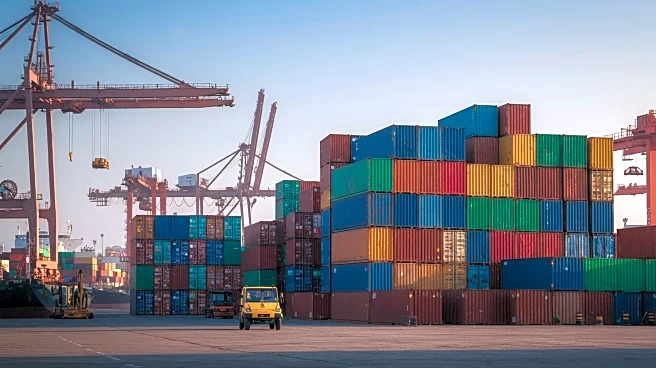What's Happening?
Turkish port authorities have started requiring shipping agents to provide letters confirming that vessels are not linked to Israel and are not carrying military or hazardous cargo bound for the country. This informal requirement follows Turkey's severance of trade with Israel, valued at $7 billion annually, due to its conflict with Hamas in Gaza. The new measures apply to ports across Turkey, prohibiting vessels arriving from or departing to Israeli ports from docking. Turkish-flagged ships are also barred from calling at Israeli ports.
Why It's Important?
These restrictions could further complicate maritime trade in the Eastern Mediterranean, affecting shipments to and from Israel. The move reflects Turkey's ongoing political stance against Israel, potentially impacting diplomatic relations and regional trade dynamics. Shipping companies and businesses involved in trade with Israel may face logistical challenges and increased costs due to these new barriers. The policy could also influence geopolitical tensions in the region, as Turkey continues to criticize Israel's actions in Gaza.
What's Next?
The informal requirement for vessels to declare no ties to Israel may lead to further diplomatic tensions between Turkey and Israel. Shipping companies may need to adjust their routes and operations to comply with these new restrictions, potentially seeking alternative ports or routes. The situation could escalate if Turkey formalizes these measures, prompting responses from international maritime and trade organizations. The broader geopolitical implications may involve increased scrutiny of Turkey's actions by other nations and entities involved in regional trade.
Beyond the Headlines
The policy highlights the complex interplay between trade and politics in the region, with potential long-term impacts on international maritime law and trade agreements. The requirement for vessels to declare no ties to Israel raises questions about the role of ports in enforcing political agendas and the potential consequences for global shipping practices.









